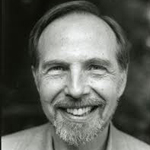Arthur Kleinman, MD, one of the world’s leading medical anthropologists, will speak on the campus of Washington University in St. Louis for the Assembly Series.

His lecture, “The Quest for Moral Wisdom in Academic Life: Why William James Still Matters for the Art of Living,” will begin at 4 p.m. Thursday, April 5, in Graham Chapel on the Danforth Campus.
The lecture is co-sponsored by the departments of Anthropology and East Asian Languages and Cultures, both in Arts & Sciences; the Program for the Humanities in Medicine in the School of Medicine; and the student honorary, Alpha Epsilon Delta. It is free and open to the public.
Kleinman is the Esther and Sidney Rabb Professor of Anthropology at Harvard University. He also holds teaching appointments in Harvard Medical School’s Department of Social Medicine and the Department of Psychiatry. In addition, he holds the Victor and William Fung Directorship in Harvard’s Asia Center.
He has devoted his career to studying how people learn to forge lives with meaning and purpose when faced with dangers and uncertainties ranging from serious illness and personal catastrophes to political violence and social turmoil.
Among the groups Kleinman has studied are the survivors of China’s Cultural Revolution, Americans and Chinese with stigmatized health conditions, and family caregivers for patients at end of life. He himself was the primary caregiver for his wife and collaborator, Joan Kleinman, who died of Alzheimer’s disease in 2011.
From these experiences and more than four decades of scholarship and research, Kleinman has developed influential theories that have become central to medical anthropology, cultural psychiatry, global health and the medical humanities, including illness as felt experience, social suffering, local moral worlds, the divided self, and medicine as moral practice.
His body of published work includes more than 200 research and review articles and chapters, as well as several textbooks and very personal, moving narratives, such as What Really Matters: Living a Moral Life Amidst Uncertainty and Danger. The book has been described by Paul Farmer, founding director of Partners in Health, as “an instructive, deeply affecting and, in the end, transcendent and spiritual book … with stories that open a channel between personal experience and the broader contexts — such as war or illness — in which we live our short lives.”
Other books include Patients and Healers in the Context of Culture; Social Origins of Distress and Disease: Neurasthenia, Depression and Pain in Modern China; and The Illness Narratives.
Kleinman earned a bachelor’s degree and medical degree from Stanford University, in 1962 and 1967, respectively. He earned a master’s degree in social anthropology from Harvard.
Among his numerous academic distinctions are memberships in the Institute of Medicine of the National Academies and in the American Academy of Arts and Sciences.
Throughout his career, Kleinman has served academic organizations and committees relating to his subject specialties, from directing the American Psychiatric Association’s World Mental Health Report, to co-chairing the National Institutes of Health (NIH) conference on the Science and Ethics of the Placebo, as well as the NIH conference on stigma. For the NIH, he has served as a member of the advisory council of the Fogarty International Center and was appointed to its Council of Councils.
For more information on this or upcoming Assembly Series programs, visit assemblyseries.wustl.edu or call (314) 935-4620.